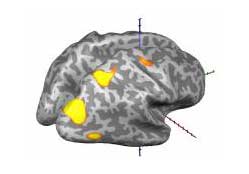Your Brain Sees $$$ More Clearly Than You Know

Get the world’s most fascinating discoveries delivered straight to your inbox.
You are now subscribed
Your newsletter sign-up was successful
Want to add more newsletters?

Delivered Daily
Daily Newsletter
Sign up for the latest discoveries, groundbreaking research and fascinating breakthroughs that impact you and the wider world direct to your inbox.

Once a week
Life's Little Mysteries
Feed your curiosity with an exclusive mystery every week, solved with science and delivered direct to your inbox before it's seen anywhere else.

Once a week
How It Works
Sign up to our free science & technology newsletter for your weekly fix of fascinating articles, quick quizzes, amazing images, and more

Delivered daily
Space.com Newsletter
Breaking space news, the latest updates on rocket launches, skywatching events and more!

Once a month
Watch This Space
Sign up to our monthly entertainment newsletter to keep up with all our coverage of the latest sci-fi and space movies, tv shows, games and books.

Once a week
Night Sky This Week
Discover this week's must-see night sky events, moon phases, and stunning astrophotos. Sign up for our skywatching newsletter and explore the universe with us!
Join the club
Get full access to premium articles, exclusive features and a growing list of member rewards.
When you see something of value, your brain essentially sees dollar signs, a new study finds.
The effect occurs even if you don't consciously realize the object's worth.
Researchers scanned the brains of subjects who were presented with choices of constantly changing red and green objects that represented 10 cents or nothing, with good choices in a game leading to potential winnings of $10.
Upon seeing objects that had been of value previously, brain activity lit up in several areas, including a part of the cortex known as V1, which is associated with representing basic features such as edge orientations and color.
"When a target had been valuable in the past — if selecting it had had paid off with money — the visual system represented it more strongly," said lead researcher John Serences, assistant professor of psychology at the University of California, San Diego. Rewards affected information processing in this initial sense and also in parts of the brain where higher cognitive thinking takes place.
"Though it is too early to say how this relates to perception," Serences said, "it raises the intriguing possibility that we see things we value more clearly — much like the way the brain responds to a bright object versus a dimly lit one."
In fact, the brain seemed to know more than a participant was able to call to mind: The changes in neural activity were a better sign of an object's past value than what subjects recalled when asked about those objects.
Get the world’s most fascinating discoveries delivered straight to your inbox.
"It's as if the visual system is telling you how valuable something has been to you in the past," Serences said, "and telling it to you like it is, even though you can't consciously identify it."
The findings are reported in the Dec. 26 issue of the journal Neuron. Further study could help researchers better understand how addictions influence information processing, Serences said. Just seeing food or drugs, for example, might have a larger impact on the psyches of some people than others.
- 5 Ways to Boost Your Brain
- Culture Fundamentally Alters the Brain
- World Trivia: Challenge Your Brain
 Live Science Plus
Live Science Plus











